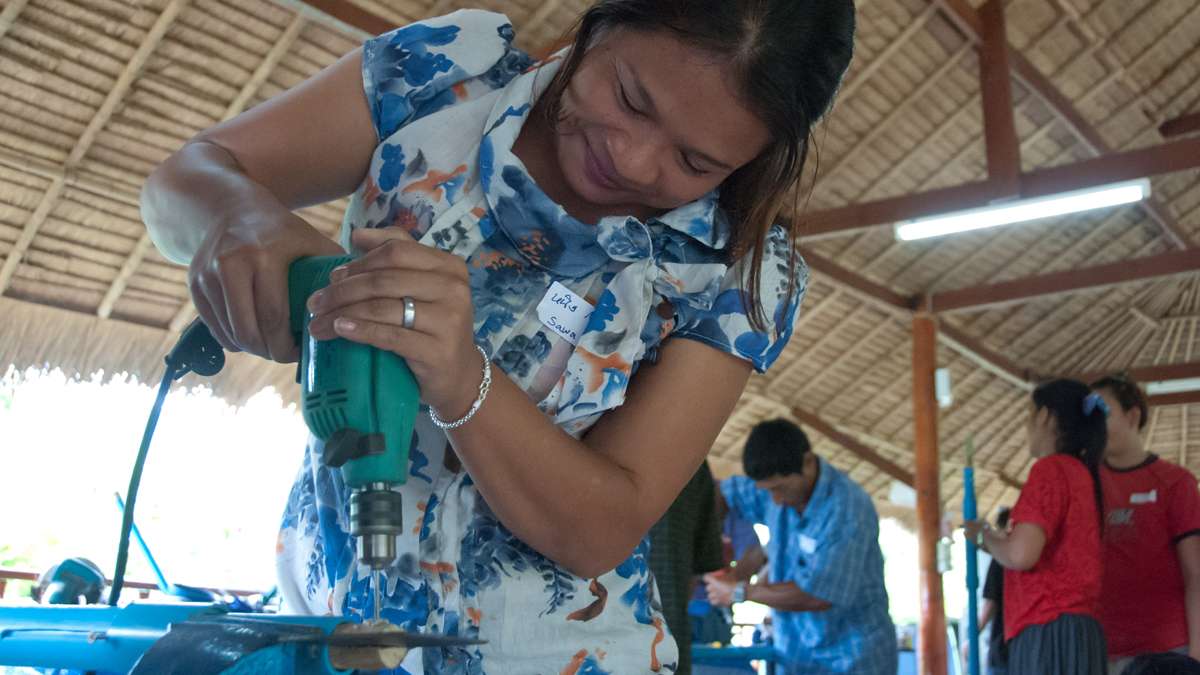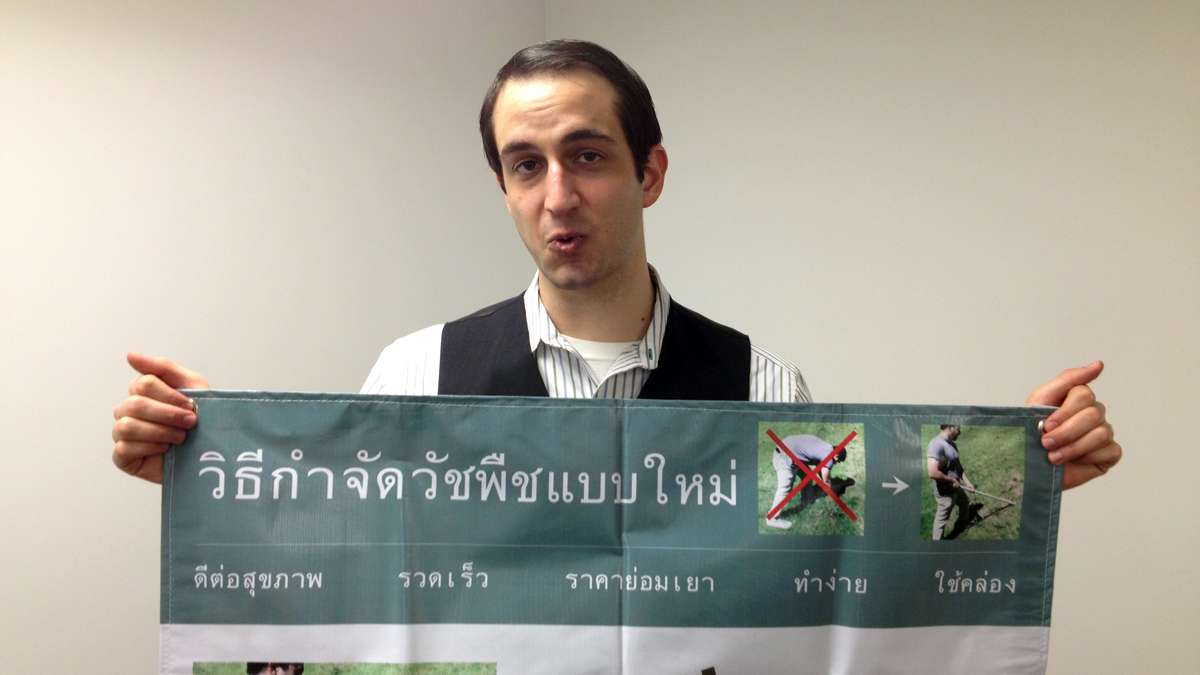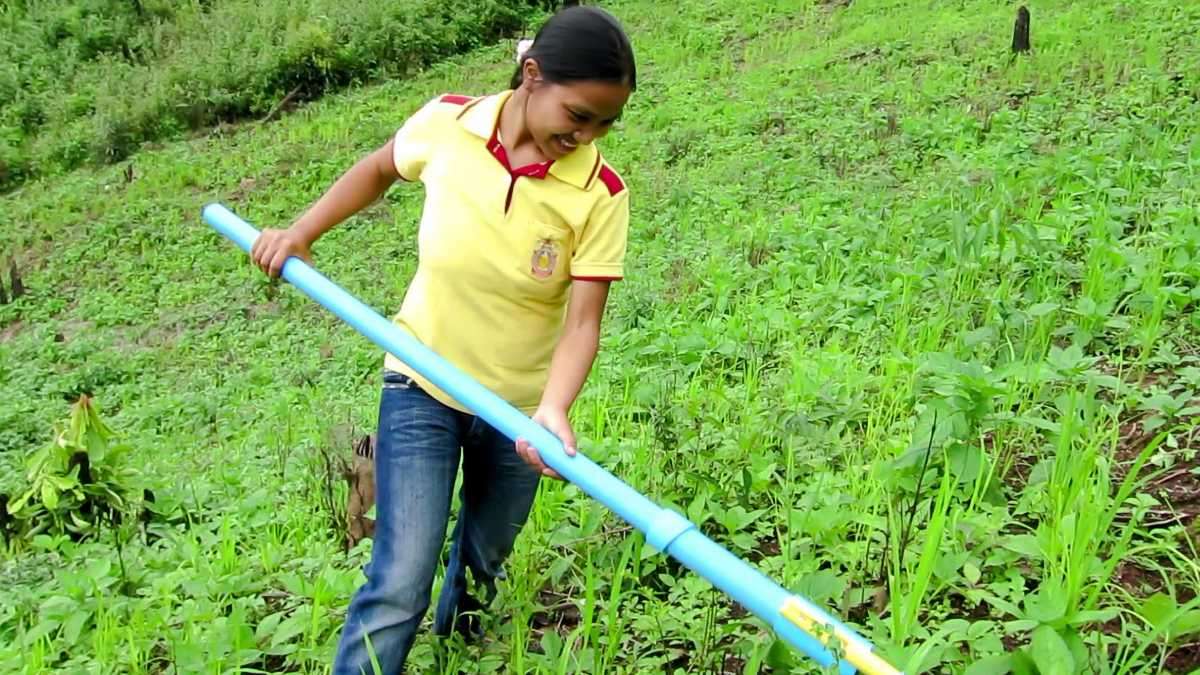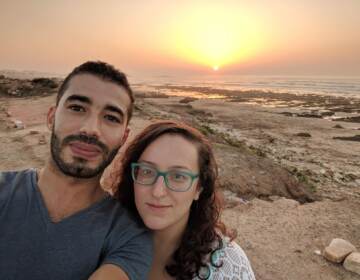How a Drexel professor (and a Gates Foundation grant) is helping farmers in Thailand
ListenFarming in the hill country of northeast Thailand has its own set of challenges.
“Anything that’s good for flatland farming will pretty much not work on a slope,” said Alexander Moseson, an assistant teaching professor at Drexel University.
Moseson found that out firsthand in 2009, while working on a medical team in the remote villages perched along the Laos border.
The 30,000 subsistence farmers in the area endure backbreaking work to plant rice seeds on sloped fields.
“One person is poking holes and another person is following behind … stooped over, on the ground, getting kicked in the face,” Moseson said. “They are throwing in 10 seeds at a time into each of these holes.”
Moseson, who teaches engineering courses at Drexel, figured there had to be a better way. He talked with local farmers to gauge what tool would be of most use, and tested several prototypes over multiple visits to Thailand.
Two low-tech innovations came out of the process: a weeder and, the pièce de résistance, a seed planter.
“This thing stores, meters, drills and drops — all in one,” Moseson said, clutching the PVC piping that houses a beaklike mechanism at one end.
Instead of getting kicked in the face, the women of Bo Kluea, Thailand — and potentially tens of millions of upland farmers in Southeast Asia alone — can now plant rice on their own.
It’s an idea that just won the backing of a major player in international aid: This week, Moseson and his collaborators received a $100,000 grant from the Bill & Melinda Gates Foundation.
“I would love to see this tool revolutionize the lives of women smallholder farmers all over the world,” Moseson said, “enabling them to work more efficiently and in a way that really benefits their health.”
The team will head back to northeast Thailand next March, starting up a production facility that will ultimately produce about 50 tools a day. Moseson says the seed planters can be built for roughly $10 each.
“In a place where people only make the equivalent of $5 a day, that’s a big investment but still affordable,” he said.
The plan is to make a business of it, Moseson said, but as a social enterprise the focus will be on changing lives — not making money.
The team from Drexel is one of three Philadelphia projects to receive grants from the Gates Foundation. Researchers from the University of Pennsylvania and Thomas Jefferson University also won $100,000 for their bold ideas. The latest round of funding supported 81 projects worldwide. Winners are now eligible for follow-on grants of up to $1 million.
WHYY is your source for fact-based, in-depth journalism and information. As a nonprofit organization, we rely on financial support from readers like you. Please give today.










